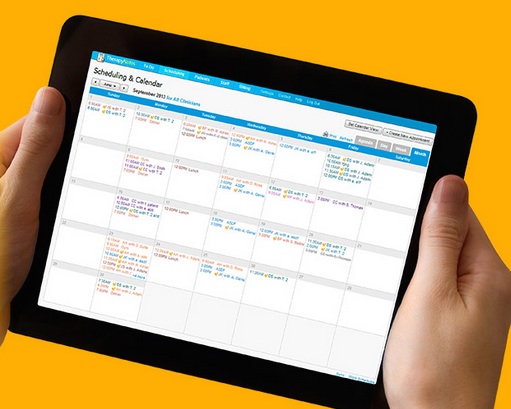 Practice management software TherapyNotes.
Practice management software TherapyNotes.
Seventy-three percent of mental health clinicians in the United States said they would find a mobile app useful in their practice, according to a survey of 401 mental health professionals conducted this summer by Sigma Research Group, sponsored by mental health startup SelfEcho. Specifically, the 73 percent said that an app that collects and aggregates data on clients between visits would be useful for tracking their client's progress, and 59 percent said such an app would be useful for treatment planning.
Today, technology usage in mental health fields is limited. While most used computers in some capacity (mostly word processors and spreadsheets), just 42 percent of the surveyed professionals -- whose ranks included licensed professional counselors, licensed clinical psychologists, licensed clinical social workers and licensed marriage and family therapists -- said they currently used specialized software in their practices.
Within that 42 percent, there was very little consensus on what software respondents used, painting a picture of a highly fragmented market for mental health practice management software. The most popular specialized software was a program called Therapy Notes, used by 23 percent of those who used specialized software. The runners up were TheraNest Mental Health and My Client Plus at 8 percent adoption within that group each.
Out of the total sample only 8 percent said they have recommended smartphone apps to clients. But interest was much higher than adoption. Two-thirds of respondents said a mobile app would help them treat clients, 52 percent said a mobile app would help them diagnose and assess clients, and 68 percent agreed that integrating additional data into the treatment process somehow would improve the mental health clinical profession as a whole.
Additionally, mental health practitioners were asked what tasks at work were taking up more time than they should, keeping them from their main business of seeing clients. Fifty-five percent said creating session treatment notes was the biggest time sink, with 50 percent listing "filing records/general organization" and 44 percent citing insurance billing and reimbursement.
Sixty-four percent of respondents believed a web-based organizational system would help them save time and money, while 39 percent felt it would improve the general organization of their practice.














